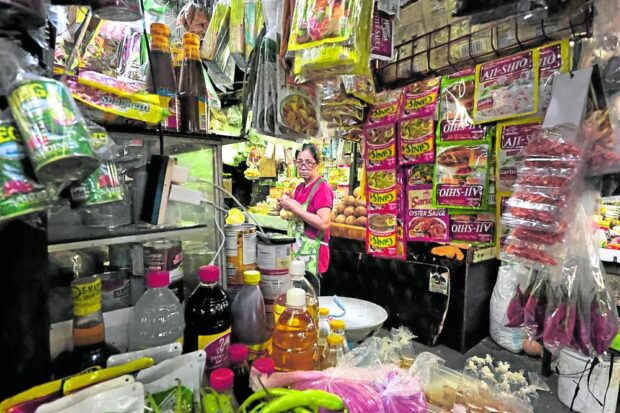Inflation likely slowed further in July, says BSP
MANILA -Overall inflation in the Philippines may have eased for the sixth month in a row in July and settled within the range of 4.1 percent to 4.9 percent, according to the Bangko Sentral ng Pilipinas (BSP).
The midpoint of the forecast range—4.5 percent— means a significant slowdown from the 5.4 percent recorded in June.
This also brings the headline number—covering growth rate of prices of good and services that households commonly purchase—further closer to the upper end of the BSP’s target range of 2 percent to 4 percent.
READ: PH inflation further eased to 5.4% in June
The Philippine Statistics Authority is expected to announce the official readout by Aug. 4.
Article continues after this advertisement“Lower electricity rates, declines in the prices of meat, fruits, and fish items, the rollback in LPG (liquefied petroleum gas) prices, and the peso appreciation could contribute to downward price pressures during the month,” the BSP said in a statement.
Article continues after this advertisement“Meanwhile, higher prices of rice and vegetables as well as higher domestic oil prices are the primary sources of upward price pressures in July,” the regulator added.
Rapid easing
Moody’s Analytics said in a commentary that inflation readings across the Asia-Pacific region have eased rapidly since 2022.
The data and research firm said the growth rate of prices should keep moderating given relatively low commodity and fuel prices and finally some easing of food price inflation.
“All central banks in the region have paused their monetary policy tightening, at least temporarily,” the company said.
Target rates
“But with inflation still exceeding central bank target rates in some economies, including the Philippines, Singapore, Australia and New Zealand, at least one further rate hike cannot be ruled out,” it added.
READ: Major central banks not done with rate hikes just yet
After raising the policy rate by a total of 4.25 percentage points from a historic low of 2 percent to 6.25 percent in March, the Monetary Board of the BSP made no changes in two consecutive policy meetings held in May and June.
READ: Philippine central bank ready to resume policy tightening if needed
In an analytical note, the Asean+3 Macroeconomic Research Office (Amro) said the decline in prices is “yet to be transmitted materially,” with China, Indonesia, Thailand, the Philippines and Vietnam showing only modest declines in retail food prices in recent months, while the rest of the region is still facing rising prices.
The analysis covers the Philippines, Indonesia, Malaysia, Thailand, Singapore, Brunei, Cambodia, Laos, Myanmar and Vietnam, as well as China, South Korea and Japan.
“In fact, global and domestic retail food prices remain high by historical standards—world food price indices reported by the Food and Agriculture Organization, International Monetary Fund, and World Bank are still 30 to 50 percent higher than their 2018–19 prepandemic averages, while food prices in the Asean+3 are 10 to 20 percent higher,” Amro said. INQ
